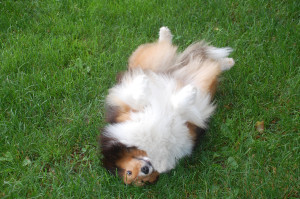My Philosophy
I believe that training:
Offers an opportunity for owners and dogs to learn about each other and to deepen their relationship.
Provides a consistent structure through which a dog can understand his world and feel comfortable in it.
Is necessary to promote good canine behavior.
Makes a dog’s life more interesting.
Makes coping with inevitable stressful situations easier – for dog and human.
Should be positive – and fun.
Training is not limited to formal sessions. Training happens whenever you and your dog are together. Focusing on these times is important, so you can understand what your dog is learning from you.
My Goals
To help:
Humans understand their dogs – and dogs understand their humans
Humans understand how dogs learn
Humans learn the fundamentals and choreography of training
Humans provide positive, consistent training and to communicate in ways dogs understand
Dogs feel comfortable in their surroundings
Dogs behave so they can participate more fully in the lives of their families

My Methods
I emphasize owners’ relationships with their dogs. I stress clear communication, body language, use of voice, interpretation of canine behavior, timing, attention, consistency, reasonable expectations and consequences. And having fun! Behavior change is predicated on understanding these issues, and on creating the motivation in your dog to want to do what you want him to do.
For treatment of emotional issues, I teach desensitization, counter conditioning and learning alternate behaviors so that your dog can better learn to deal with situations that make him afraid or reactive.
I use positive methods, encouraging owners to use food, toys and their voices to motivate their dogs. I also teach owners to effectively say “no” to their dogs in a clear and humane manner.
I don’t rush things. Sometimes treatment of behavior problems, in particular, can take longer than we’d like. So I provide additional phone and email support to my clients free of charge.
